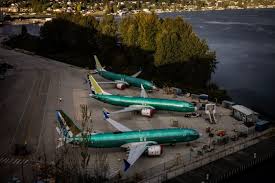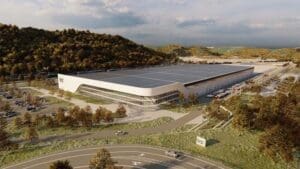October 21st – 24th Supply Chain & Logistics News Round Up
This past week, I returned to the Tampa Bay Area to visit family and see the lasting effects of back-to-back hurricanes. Words cannot fully capture the extent of the devastation left behind, and it will take months for the surrounding counties to recover from the aftermath in Milton and Helene. Due to flooding, homeowners have had to discard furniture and other belongings that once filled their homes. According to the Tampa Bay Times, there are over 1 million cubic yards of debris still awaiting collection—enough to fill more than 60,000 dump trucks. The governor has mobilized thousands of personnel to tackle the waste issue in Pinellas County and is working to expedite the removal process. From a sustainability and supply chain perspective, this situation is incredibly challenging to comprehend. Moving forward, will homeowners be more mindful of how they prepare their homes before a storm? Will the state be better equipped for waste removal? How will state and federal governments promote sustainability and supply chain preparedness in anticipation of future storms impacting the southeastern United States? These are all questions that have been occupying my thoughts as I return home.
Now let’s get to the Supply Chain & Logistics News for the week!
Nauto and Beans.ai Join Forces to Optimize the Safety, Efficiency and Accuracy of Last Mile Delivery for Commercial Fleets


Nauto and Beans.ai have announced a strategic partnership to enhance the safety and efficiency of last-mile delivery operations for commercial fleets. By integrating Nauto’s AI-powered Video Event Data Recorder (VEDR) solution with Beans.ai’s precision location data and micro-routing technology, the collaboration offers a comprehensive solution tailored to meet the needs of last-mile deliveries, including VEDR compliance. This partnership aims to streamline delivery processes, improve driver safety, and increase delivery accuracy, benefiting companies like Prologics, Inc. The combined expertise of Nauto’s advanced fleet safety technology and Beans.ai’s cutting-edge routing solutions optimizes last-mile operations, reduces delivery times, and improves overall fleet management.
TrusTrace Unveils Highly-Automated Deforestation Compliance Solution Ahead of EUDR Enforcement


TrusTrace, a leader in supply chain traceability, has launched its advanced Deforestation Compliance Solution to help companies meet the EU’s Deforestation Regulation (EUDR) requirements, which aim to prevent deforestation-linked products from entering the EU. With enforcement delayed until December 2025, businesses have time to integrate this tool, which streamlines data collection, geospatial analysis, and compliance verification. The solution was co-developed with major brands and leverages automation, satellite imagery from partner OpenAtlas, and FSC certification to ensure shipment-level traceability and risk assessment. TrusTrace’s platform supports compliance across multiple regulations globally, including the US Lacey Act and UK Environment Act.
Boeing Continues Facing Turbulence While Executives Announce Plans to Rebound


Boeing continues to face significant challenges as 33,000 unionized workers remain on strike, rejecting a proposed contract that offered a 35% wage increase and improved benefits. Central to the dispute is the loss of traditional pension plans, which has left deep resentment among workers. The strike, costing Boeing $1 billion a month, is exacerbating the company’s financial woes, with its third-quarter losses reaching $6.2 billion.
New CEO Kelly Ortberg acknowledged Boeing’s mounting problems, including a growing debt of $53 billion and operational lapses. He outlined a strategy to rebuild the company by addressing cultural and performance issues, emphasizing that Boeing needs to stabilize before considering the development of a new aircraft. Ortberg also stressed the importance of mending relations with the union and maintaining a leaner, more focused organization to handle future challenges. While Boeing has over $500 billion in aircraft orders, its immediate financial hurdles, including potential credit downgrades, remain critical obstacles to recovery.
Argentina’s Lithium Industry Reacts to a Shift in Global Demand

Globally, Argentina is the fourth largest producer of Lithium. It has the second-largest reserve and is a hot spot for future investment with interested parties from across the globe. In the last year and a half, the price of lithium has slumped 80%, and firms have decided to hit the brakes on production. Lithium prices dropped, driven by oversupply and lower-than-expected electric vehicle (EV) demand. As a result, companies are cutting staff, slashing spending, and halting exploration projects. This slowdown is expected to reduce Argentina’s future lithium output, particularly by 2026-2028, which could exacerbate a projected supply shortfall as demand rises toward the end of the decade. Firms have cut staff, slashed spending and halted exploration projects, and the plunging value of lithium assets has left some firms vulnerable to takeover. The downturn has also spurred mergers and acquisitions as companies seek deeper financial backing to weather the market challenges.
Form Energy Breaks Ground on New Facility and Announces Major Industry Collaboration


Form Energy has broken ground on its factory expansion that will add an estimated 300,000 square feet to its West Virginia facility, where it manufactures long-duration energy storage systems. The news follows closely an announcement of the closing of a $405 million Series F fundraising round and an MOA with GE Vernova on a collaboration of manufacturing and supply chain operations.
A key supply chain challenge is securing a steady, cost-effective supply of iron, the core material of the batteries. The company’s geographically dispersed projects across the U.S. require an efficient logistics network to deliver materials and products to multiple locations. Strategic partnerships with utilities and financial backing from entities like GE Vernova and the U.S. Department of Energy are essential for scaling operations, while the supply chain must support the specialized infrastructure needed for this innovative technology.
Song of the week:




















